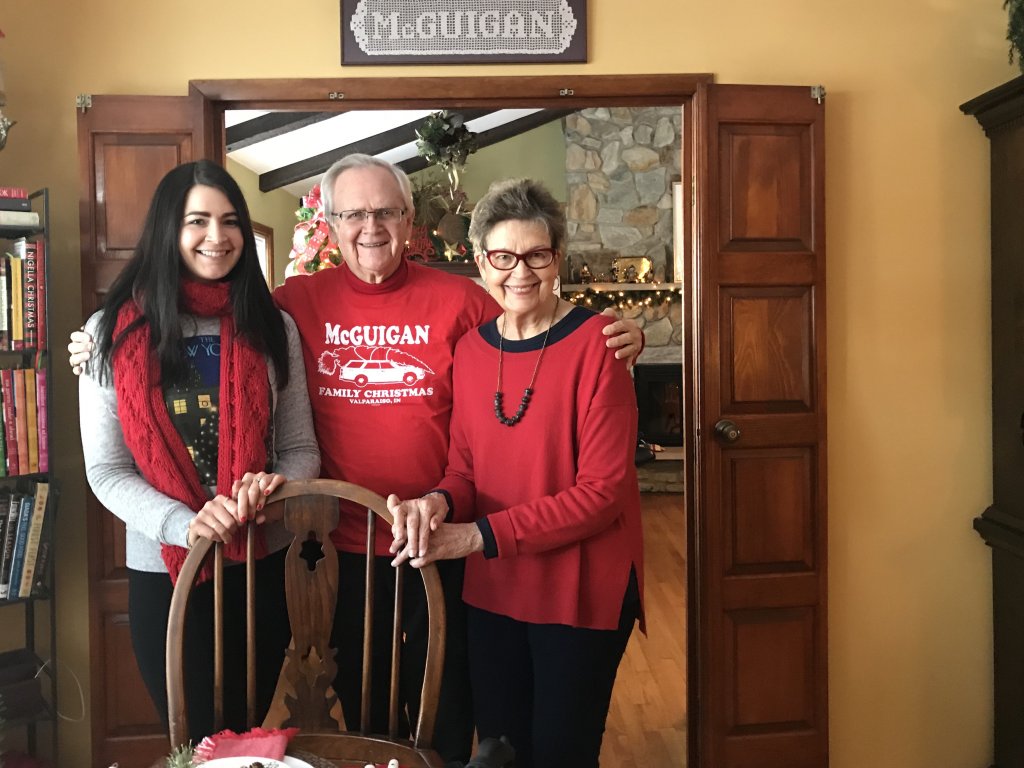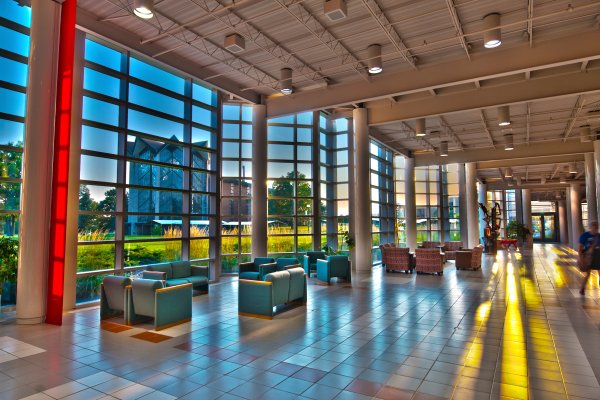Hugh McGuigan, Director of International Studies (July 1, 1986 through June 2008)
In August 1983, Martin Schaefer, Director of International Studies, retired from the international student and scholar part of his position so that I could take over and continue teaching as an adjunct assistant professor in the College of Arts and Sciences. When Professor Schaefer retired completely in June 1986, I was appointed Director of International Studies, to oversee and serve both study-abroad students and international students and scholars.
The Cambridge and Reutlingen Study Centers, which opened in spring 1968, had full enrollments of, on average, 20 students almost every semester, often having waiting lists. I was thrilled, therefore, to begin my duties as the director in charge of such successful programs. Why were Cambridge and Reutlingen such successful programs? The structure of these two pillar programs remained as they were set up: Valparaiso University professors were selected for two-year terms to serve as the resident directors and to teach two courses –one on the Life and Culture of the host country and one in the professor’s field of expertise. Their courses and the ones taught by professors from the partner institutions were chosen to meet general education and, possibly, major/minor requirements, and to complement the students’ stay in the country and their travels throughout Europe. The formula for success was the combination of carefully selected VU resident directors and students, courses that would enable students to graduate on time, competent and dedicated host-country faculty, ideal locations, a supportive director and staff in the International Studies Office on the VU campus, and great teamwork. It is no wonder that most students and faculty alike referred to their time abroad with phrases like “life changing,” “best experience of my time at Valpo,” or “You simply have to go.” Cambridge and Reutlingen “cultures” had developed on campus, and the best recruiters were the returning students and the former resident directors.
Because of the successes of the Cambridge and Reutlingen programs and a need for programs in other countries, the study center in Puebla, Mexico, began in 1982, averaging 10 students every spring semester. A cooperative program in Paris for French majors and a year-long program in Tübingen started in 1982 and 1985, respectively. These new programs did not affect the enrollments for Cambridge and Reutlingen, and over the next 20 years more VU-approved programs (all financial aid applied; VU credits with grades) were added for curricular and regional reasons, reaching a total of 14, and the enrollments in Cambridge and Reutlingen remained healthy.
While the Cambridge and Reutlingen models worked beautifully for Arts and Sciences students, it was more difficult for students from the Colleges of Business Administration, Engineering, and Nursing to get the courses they needed and finish in four years, though some did. To partially address this problem in Reutlingen, a course that would count for business students was added in 1990. And I arranged for students in Cambridge to take a needed course at Anglia Polytechnic University, now Anglia Ruskin University, beginning in 1994. These efforts to make the Cambridge and Reutlingen course offerings more attractive to as many students as possible helped maintain solid enrollments. Though the enrollments have declined in recent years for a variety of reasons, I am optimistic that with the right curricular changes the centers in Cambridge and Reutlingen will grow in new and different ways and prosper for another 50 years.
In 2008, Valparaiso University received the prestigious Senator Paul Simon Award for Campus Internationalization. Without a doubt, the Cambridge and Reutlingen study centers, which started campus internationalization in an intentional way, deserve much of the credit for this award.

